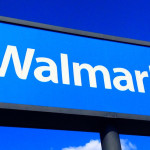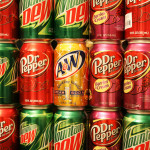Transparency is the biggest trend reshaping the food, pet, and nutrition industries today. We have dedicated significant analysis to the trend on this site, but we also want to make sure our readers are aware of relevant news on the topic, whether we analyze it or not. This post represents our first transparency report, covering the latter half of 2016 with quick updates on the biggest transparency stories of the year. As you try to figure out what a new year and a new administration mean for your company, these are some stories you should know.
Late 2016: Apps, GMOs, and Soda Taxes
The latter half of 2016 brought major regulatory changes on GMOs and sugary drinks. It saw numerous initiatives—both public and private—to share product data with consumers. The world’s largest retailer launched a new clean label initiative, and the FDA approved a new genetically engineered fruit. Each of these stories will continue to have major implications in 2017, and several will likely affect your business. Read on for more of the highlights.
FDA Approves Genetically Engineered Pink Pineapple
 In December, the FDA approved for marketing a pink fleshed pineapple genetically engineered by Del Monte. The pineapple, found to be safe for consumption, has higher levels of lycopene than the conventional yellow fruit, and will be grown in Costa Rica for sale in the United States and elsewhere.
In December, the FDA approved for marketing a pink fleshed pineapple genetically engineered by Del Monte. The pineapple, found to be safe for consumption, has higher levels of lycopene than the conventional yellow fruit, and will be grown in Costa Rica for sale in the United States and elsewhere.
GMO Labeling Update
The GMO labeling story saw major new developments in the latter half of 2016, as President Obama signed a nationwide labeling bill into law. Although transparency advocates had mixed feelings about the bill, it has certainly shifted debate from being over labeling as such to more specific concerns about what GMO disclosures should look like as they are implemented over the coming years. Furthermore, science on the safety and environmental effects of GMOs is ongoing. Debate about labeling may have moved into a new phase, but discussion of GMOs in general can be expected to continue.
Walmart Eliminating Eight Chemicals
 In July, Walmart asked its suppliers to eliminate eight chemicals from all products, in an effort that will affect makers of household goods, personal care items, and cosmetics. The ingredients include formaldehyde, tryclosan, and certain types of phthalates and parabens, among others. The shift signals that the largest retail brand will continue to place a greater emphasis on transparency and clean label standards for personal care and beauty products.
In July, Walmart asked its suppliers to eliminate eight chemicals from all products, in an effort that will affect makers of household goods, personal care items, and cosmetics. The ingredients include formaldehyde, tryclosan, and certain types of phthalates and parabens, among others. The shift signals that the largest retail brand will continue to place a greater emphasis on transparency and clean label standards for personal care and beauty products.
FDA Publishing Cosmetics Safety Concerns
Although “adverse events”—safety issues or low quality—in cosmetics have been reported to the FDA for a long time, those reports have previously only been available through inquiries submitted under the Freedom of Information Act. In December, however, the FDA announced that they had begun publishing that data publicly and would also be working to improve the quality of the data. The new database aims to inform consumers and also make reporting incidents easier, suggesting that it will drive further increases in transparency for the cosmetic and personal care industries.
Public Nutrition Database
In September, the USDA announced the launch of their new Branded Food Products Database, a free online database of nutritional data on almost 80,000 products. The new initiative is aimed at helping consumers make better health choices by providing them with detailed information about common foods. It will also serve as a source of information for the food and beverage industry, as it can be used to gather information on the use of certain ingredients or broad nutritional trends.
Soda Tax Success
 One of the bigger food stories to come out of the 2016 election was the success of soda taxes in several municipalities around the country, including San Francisco, Oakland, Albany (NY), and Boulder (CO). These regulatory changes signal an increasing scrutiny of sugar content on the part of consumers, and a greater willingness to implement systems to reduce sugar consumption. More of such taxes will be up for a vote soon in locations such as Chicago.
One of the bigger food stories to come out of the 2016 election was the success of soda taxes in several municipalities around the country, including San Francisco, Oakland, Albany (NY), and Boulder (CO). These regulatory changes signal an increasing scrutiny of sugar content on the part of consumers, and a greater willingness to implement systems to reduce sugar consumption. More of such taxes will be up for a vote soon in locations such as Chicago.
We hope this report on the biggest transparency stories of 2016 sparked an idea or suggested some other areas for you to investigate. Whether you need additional research, ideas for a transparency campaign, or a package that complies with new regulations, we can help. Start the conversation with an email or call: 314.647.9500.
Walmart image by Mike Mozart of TheToyChannel and JeepersMedia on YouTube. Soda image via Alexander Kaiser, pooliestudios.com.

